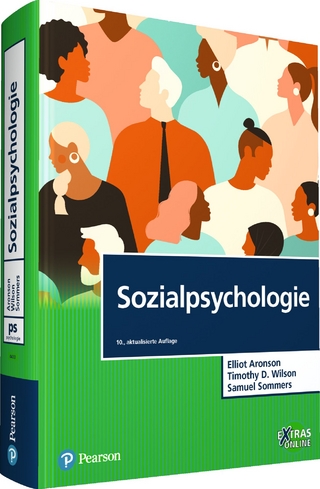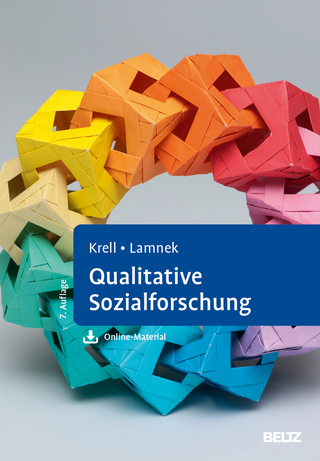
The Oxford Handbook of Integrative Health Science
Oxford University Press Inc (Verlag)
978-0-19-067638-4 (ISBN)
Most health research to date has been pursued within the confines of scientific disciplines that are guided by their own targeted questions and research strategies. Although useful, such inquiries are inherently limited in advancing understanding the interplay of wide-ranging factors that shape human health.
The Oxford Handbook of Integrative Health Science embraces an integrative approach that seeks to put together sociodemographic factors (age, gender, race, socioeconomic status) known to contour rates of morbidity and mortality with psychosocial factors (emotion, cognition, personality, well-being, social connections), behavioral factors (health practices) and stress exposures (caregiving responsibilities, divorce, discrimination) also known to influence health. A further overarching theme is to explicate the biological pathways through which these various effects occur. The biopsychosocial leitmotif that inspires this approach demands new kinds of studies wherein wide-ranging assessments across different domains are assembled on large population samples. The MIDUS (Midlife in the U.S.) national longitudinal study exemplifies such an integrative study, and all findings presented in this collection draw on MIDUS. The way the study evolved, via collaboration of scientists working across disciplinary lines, and its enthusiastic reception from the scientific community are all part of the larger story told. Embedded within such tales are important advances in the identification of key protective or vulnerability factors: these pave the way for practice and policy initiatives seeking to improve the nation's health.
Carol D. Ryff is Hilldale Professor of Psychology and Director of the Institute on Aging at the University of Wisconsin-Madison. She is Principal Investigator of the Midlife in the U.S. (MIDUS) national longitudinal study, which has become a major forum for integrative health science. Her research centers on the interplay of psychological, social, and biological factors that influence health, including in contexts of life adversity. Robert F. Krueger is Hathaway Distinguished Professor and Distinguished McKnight University Professor in the Department of Psychology at the University of Minnesota. He completed his undergraduate and graduate work at the University of Wisconsin, Madison, and his clinical internship at Brown University. Professor Krueger's major interests lie at the intersection of research on aging, health, personality, psychopathology, and behavior genetics.
PART I: Setting the Stage
Chapter 1 Approaching Human Health as an Integrative Challenge: Introduction and Overview
Carol D. Ryff and Robert F. Krueger
Chapter 2 Behind The Scenes in Integrative Health Science: Understanding and Negotiating Data Management Challenges
Barry T. Radler and Gayle D. Love
Chapter 3 The Roles of Twin Studies and Modern Genomic Technologies in Integrative Health Science
Robert F. Krueger and Susan C. South
PART II: Early Experience, Life Course Pathways, and Adult Health
Chapter 4 Early Life Adversity and Adult Health
Cynthia S. Levine, Gregory E. Miller, Margie E. Lachman, Teresa E. Seeman, and Edith Chen
Chapter 5 Gender, Early Life Adversity and Adult Health
Chioun Lee, Carol D. Ryff, and Christopher L. Cole
Chapter 6 Cumulative Stress and Health
Natalie Slopen, Celena Meyer, and David R. Williams
Chapter 7 Determinants and Implications of Subjective Age Across Adulthood and Old Age
Yannick Stephan, Angelina R. Sutin, and Antonio Terracciano
PART III: Work and Family Roles, Daily Life, and Adult Health
Chapter 8 Promoting Healthy Practices in the Work Place: Making Worker's Health a Priority Before It Becomes a Problem
Kasey E. Longley, Amy M. Smith, and Joseph G. Grzywacz
Chapter 9 Work and Family: Pathways to Health
Amy M. Smith, Kasey E. Longley, and Joseph G. Grzywacz
Chapter 10 Intimate Partner Relationships and Health
Deborah Carr and Dawne M. Mouzon
Chapter 11 The Lifelong Health Effects of Parenting a Child with Developmental or Mental Health Problems
Jieun Song, Marsha R. Mailick, Jan S. Greenberg, and Jinkuk Hong
Chapter 12 Daily Positive Experiences and Health: Biobehavioral Pathways and Resilience to Daily Stress
Nancy L. Sin and David M. Almeida
Chapter 13 Family as a Naturally Occurring Stressor: Race, Psychosocial Factors, and Daily Health
Kelly E. Cichy and Jeong Eun Lee
Chapter 14 Social Capital, Altruistic Behaviors, and Health
Takeo Fujiwara and Carol D. Ryff
PART IV: Interplay of Psychosocial Factors, Biology, and Health Outcomes
Chapter 15 Psychosocial Resources and Physiological Dysregulation
Joshua F. Wiley, Tara L. Gruenewald, and Teresa E. Seeman
Chapter 16 Biopsychosocial Patterning of Multimorbidity and its Consequences
Elliott Friedman, Beth LeBreton, Lindsay Fuzzell, and Elizabeth Wehrspann
Chapter 17 Psychosocial Life Histories and Biological Pathways to Bone Health
Arun S. Karlamangla, Neil Binkley, and Carolyn J. Crandall
Chapter 18 Biopsychosocial Pathways to Prediabetes and Diabetes
Vera Tsenkova, Deborah Carr, Christopher L. Coe, Arun S. Karlamangla, and Carol D. Ryff
Chapter 19 Weight Identity Among Older Adults in the United States: Genetic and Environmental Influences
Robbee Wedow, Daniel A. Briley, Susan E. Short, and Jason Boardman
Chapter 20 Psychosocial Consequences of Body Weight and Obesity
Deborah Carr and Vera Tsenkova
PART V: Psychological Factors and Health: Cognition, Personality, Emotion, Well-Being
Chapter 21 Cognition at Midlife: Antecedents and Consequents
Stefan Agrigoroaei, Stephanie A. Robinson, Matthew L. Hughes, Elizabeth H. Rickenbach, and Margie E. Lachman
Chapter 22 Associations Between Personality and Behavior Over the Life Course
Nicholas A. Turiano, Patrick L. Hill, Eileen K. Graham, and Daniel K. Mroczek
Chapter 23 Personality as a Determinant of Health Behaviors and Chronic Diseases: Review of Meta-Analytic Evidence
Markus Jokela
Chapter 24 The Road to Positive Health: Behavioral and Biological Pathways Linking Positive Psychological Functioning with Health Outcomes
Julia K. Boehm
Chapter 25 Distinguishing Between Enduring and Fragile Positive Affect: Implications for Health and Well-Being in Midlife
Anthony D. Ong, Nancy L. Sin, and Nilam Ram
Chapter 26 The Temporal Dynamics of Emotional Responding: Implications for Well-Being and Health from the MIDUS Neuroscience Project
Stacey M. Schaefer, Carien M. van Reekum, Regina Lapate, Aaron S. Heller, Daniel W. Grupe, and Richard J. Davidson
Chapter 27 Culture, Emotions, and Health
Jiah Yoo and Yuri Miyamoto
Chapter 28 Anger, Expression and Health: The Cultural Moderation Hypothesis
Jiyoung Park and Shinobu Kitayama
PART VI: Integrative Perspectives on Social Inequalities in Health
Chapter 29 Personality and Socioeconomic Status Over the Adult Working Years
Benjamin P. Chapman and Ari Elliott
Chapter 30 Social Inequalities, Psychological Risk and Resilience, and Health
Jennifer Morozink Boylan, Christopher L. Coe, and Carol D. Ryff
Chapter 31 Socioeconomic Status and Health-Related Biology: Links Between Socioeconomic Disadvantage, Psychological Factors, and HPA Activity in MIDUS
Samuele Zilioli, Ledina Inami, and Richard B. Slatcher
Chapter 32 Perceived Discrimination and Health: Integrative Findings
Adolfo G. Cuevas and David R. Williams
Chapter 33 Disparities in Health Between Black and White Americans: Current Knowledge and Directions for Future Research
Thomas E. Fuller-Rowell, David S. Curtis, and Adrienne M. Duke
Chapter 34 The Education Gradient in Physiological Dysregulation: A Cross-Country Investigation
Dana A. Glei, Noreen Goldman, and Maxine Weinstein
Chapter 35 The Great Recession, Inequality, and Health: An Integrative Approach
Julie A. Kirsch and Carol D. Ryff
| Erscheinungsdatum | 05.11.2018 |
|---|---|
| Reihe/Serie | Oxford Library of Psychology |
| Verlagsort | New York |
| Sprache | englisch |
| Maße | 257 x 183 mm |
| Gewicht | 1157 g |
| Themenwelt | Geisteswissenschaften ► Psychologie ► Sozialpsychologie |
| Medizin / Pharmazie | |
| ISBN-10 | 0-19-067638-8 / 0190676388 |
| ISBN-13 | 978-0-19-067638-4 / 9780190676384 |
| Zustand | Neuware |
| Haben Sie eine Frage zum Produkt? |
aus dem Bereich


